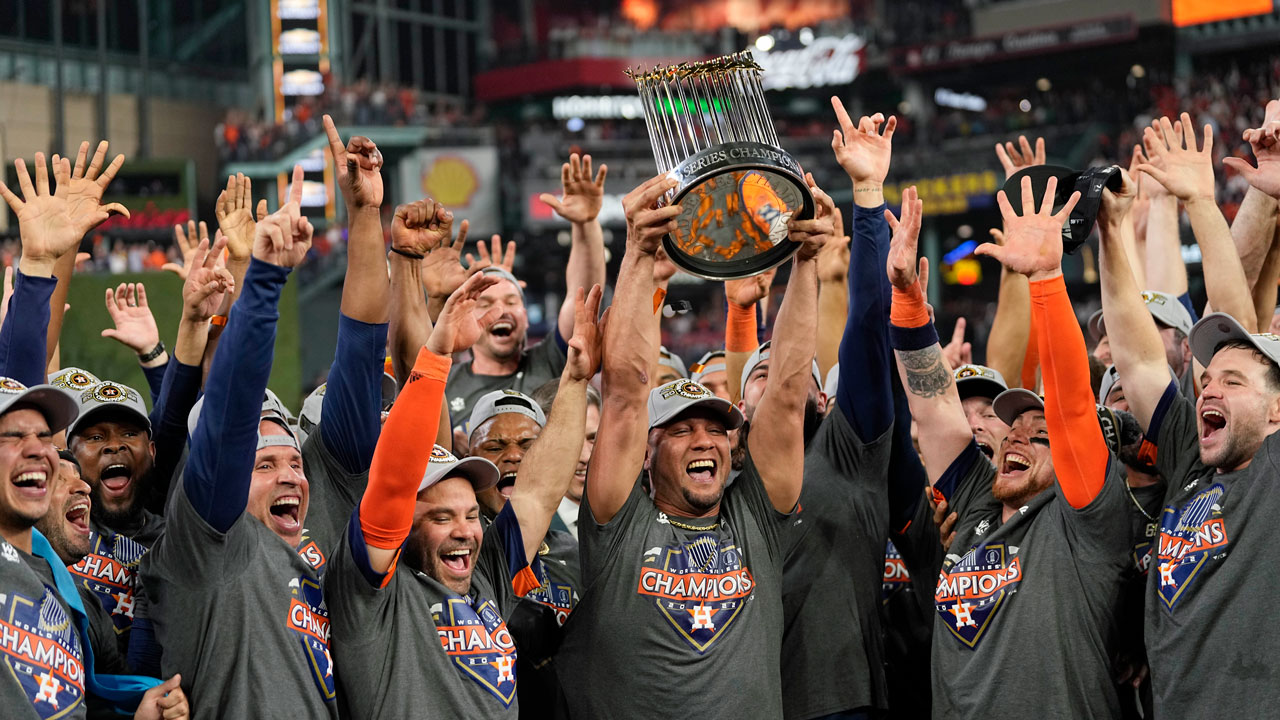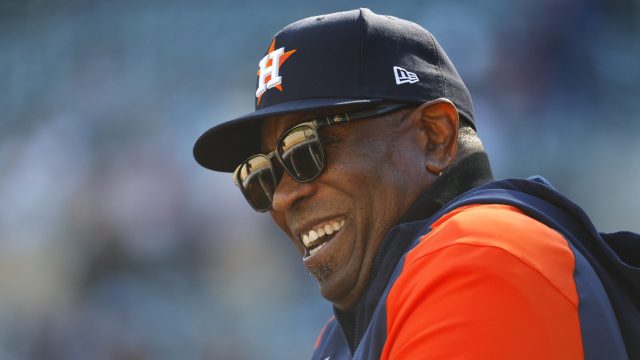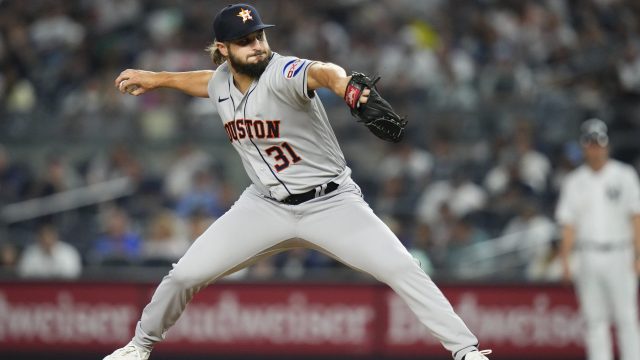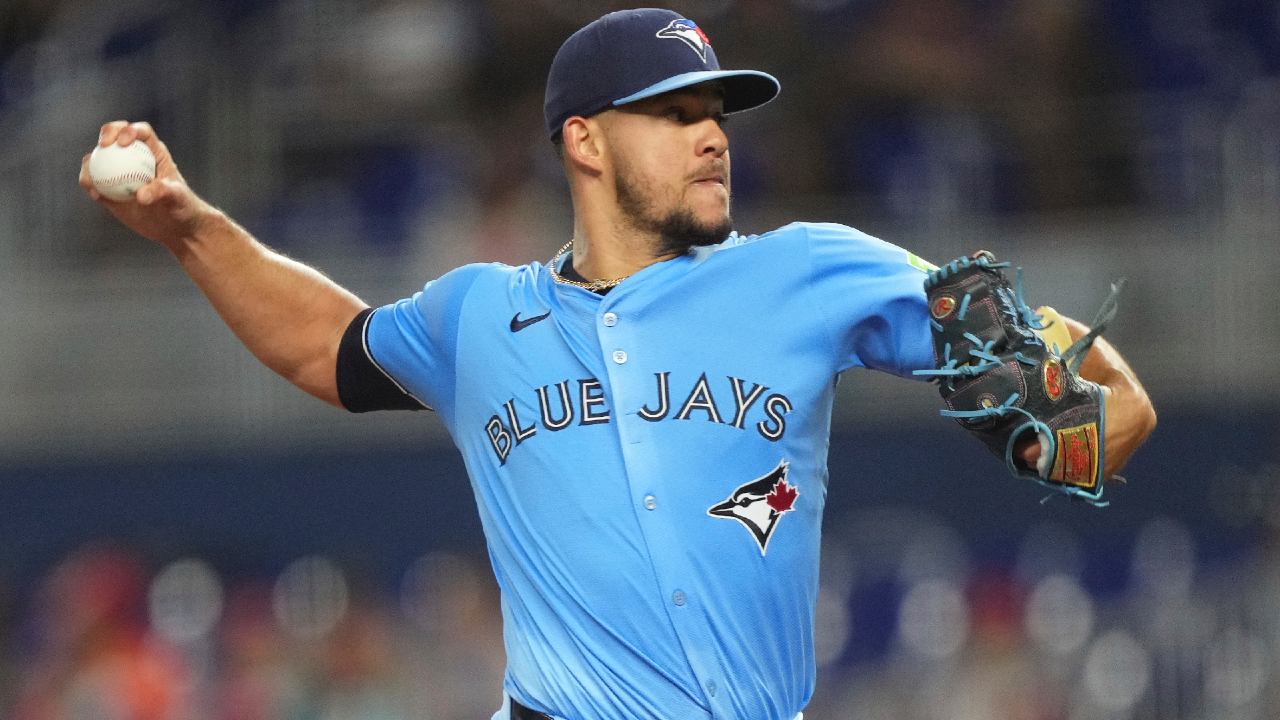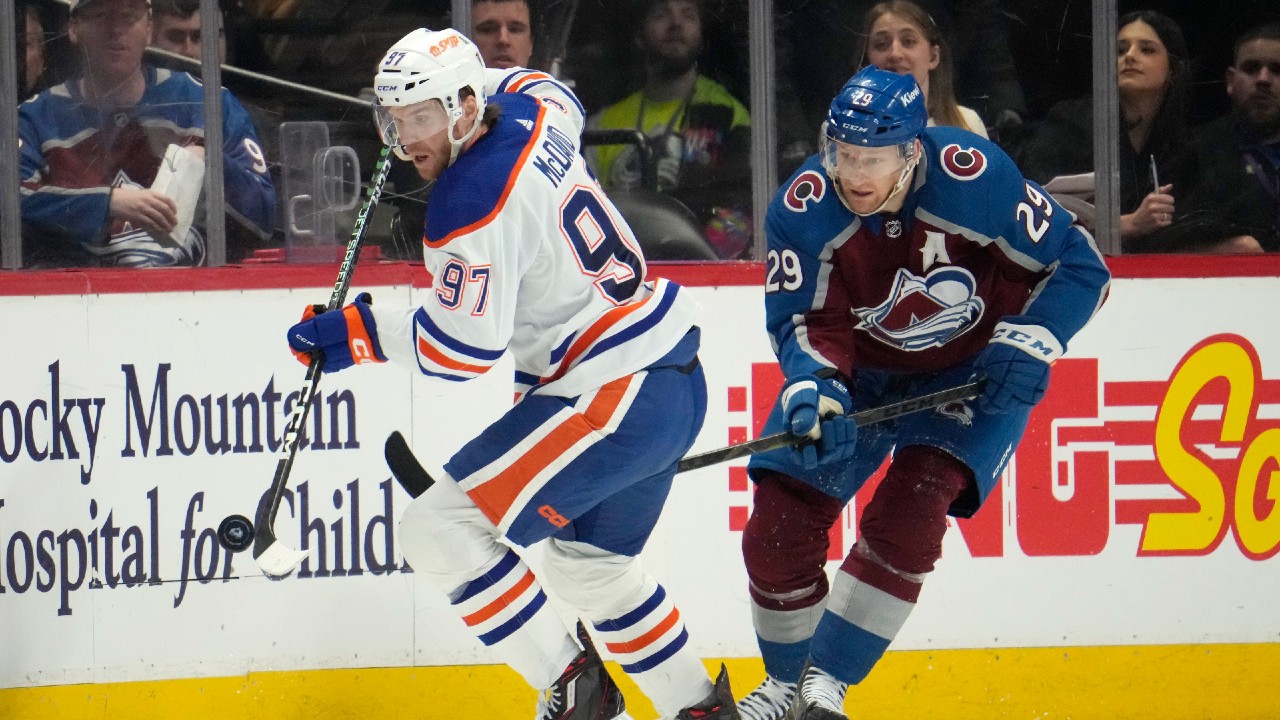
For the first time ever, the Houston Astros and Texas Rangers are set to square off in the post-season.
The Astros are no strangers to this stage, making their seventh straight trip to the ALCS, while the Rangers earned their spot on the doorstep of the World Series for the first time since 2011.
The two clubs may have different October track records, but they are quite similar on the field.
Both sides enter the series with an identical 90-72 regular-season record, a veteran manager with more than 2,000 career wins, a top-five offence and a three-time Cy Young winner added at the trade deadline. It’s safe to say Houston and Texas share a little bit more in common than a home state.
If there’s one thing that this October has shown us, it’s that anything can happen in the playoffs. But now, with a little more randomness removed in the form of a seven-game series, both squads will look to find advantages on the margins as they battle for a spot in the Fall Classic.
Here is one key to victory for both the Astros and Rangers before the series kicks off on Sunday.
Series Setup
Schedule:
Game 1: Oct. 15, 8:15 p.m. ET/5:15 p.m. PT.
Game 2: Oct. 16, 4:37 p.m. ET/1:37 p.m. PT.
Game 3: Oct. 18, 8:03 p.m. ET/5:03 p.m. PT
Game 4: Oct. 19, 8:03 p.m. ET/5:03 p.m. PT
Game 5 (if necessary): Oct. 20, 5:07 p.m. ET/2:07 p.m. PT
Game 6 (if necessary): Oct. 22, 8:03 p.m. ET/5:03 p.m. PT
Game 7 (if necessary): Oct. 23, 8:03 p.m. ET/5:03 p.m. PT
Betting odds via Sports Interaction: Astros to win series (-140), Rangers to win series (+115)
Rangers’ key to victory: Don’t rely on the bullpen.
Texas limped through September, thanks to some spectacular late-game collapses by its bullpen. In the second half as a whole, Rangers relievers posted a 5.01 ERA and blew 17 saves — helping them become just the fifth team ever to win more than 90 games despite blowing more saves than they completed.
But so far in these playoffs, the bullpen has gotten the job done. It owns a 2.16 ERA over 16.2 innings, picking up a pair of wins in Texas’ sweeps over the Tampa Bay Rays and Baltimore Orioles.
However, as you can see in the table below, the Rangers have barely had to lean on any of their relievers not named Jose Leclerc this post-season.
|
Relievers |
Appearances |
IP |
ERA |
FIP |
K% |
BB% |
|
Jose Leclerc |
5 |
5.0 |
1.80 |
4.06 |
31.6 |
5.3 |
|
Cody Bradford |
1 |
3.2 |
0.00 |
1.07 |
28.6 |
0.0 |
|
Aroldis Chapman |
3 |
2.2 |
0.00 |
5.51 |
25.0 |
33.3 |
|
Josh Sborz |
3 |
2.2 |
0.00 |
2.13 |
33.3 |
11.1 |
|
Dane Dunning |
1 |
2.0 |
4.50 |
10.26 |
12.5 |
12.5 |
|
Will Smith |
1 |
0.1 |
0.00 |
-2.74 |
100.0 |
0.0 |
|
Brock Burke |
1 |
0.1 |
54.00 |
12.26 |
0.0 |
33.3 |
The Rangers’ starting pitching has been exceptional in the playoffs, led by the strong work of Nathan Eovaldi and Jordan Montgomery, who have worked deep into games, limiting the amount the team has needed to turn to its shaky relief corps.
The Championship Series is a different beast.
Texas has used just three starters up to this point through the wild-card and Division Series rounds. In a seven-game series, manager Bruce Bochy will be forced to use more of his relievers than he’s needed to up to this point. For the first time this post-season, the Rangers’ depth will be tested against a loaded Astros offence that has wreaked havoc on the opposing bullpens all season.
With Max Scherzer and Jon Gray returning to the roster, though their roles are unclear at this point, the Rangers may be able to get creative in how they deploy them to avoid turning to some of the question marks in their pitching staff.
Houston finished the regular season with a .266/.342/.445 slash line against relievers and had a 5.09 ERA against once opponents moved on from their starters.
Jose Altuve, Yordan Alvarez and Kyle Tucker, in particular, have owned opposing bullpens. All three (Altuve: 989, Alvarez: .990, Tucker: .934) posted an OPS north of .900 when facing relievers in the regular season.
So if the Rangers want to make it back to the World Series for the first time in over a decade, their starting pitchers are going to have to continue working deep into games and limit how often the Astros’ big bats get a crack at their non-leverage relievers.
Astros’ key to victory: Cristian Javier and Jose Urquidy continue to find their form.
In a series where both teams are bringing some serious firepower to the plate, it makes sense that whoever can limit the damage the most should have a leg up over the course of seven games.
For Houston, the back end of its rotation is going to have to cool off Corey Seager and the Rangers’ powerful attack.
Both Javier and Urquidy entered the post-season with regular-season ERAs above 4.50, and neither pitched all that much better in September.
But that didn’t stop either righty from going into Minnesota in the wild card and throwing five-plus innings on their way to a win.
Javier has the more sparkling playoff resume of the two, entering the ALCS with a career 1.91 ERA when the stakes are higher, but Urquidy is no slouch in the post-season either. He has a 3.64 ERA and has worked as both a starter and reliever for Houston in October.
While the Twins have a solid offence, the lineup Texas will roll out is on a different level. Due to injury, Urquidy didn’t get to pitch against the Rangers this season, and Javier only made one start against the Astros’ division rival. In that start, he went 4.1 innings and gave up eight runs on nine hits.
With Texas getting Scherzer and Gray back, Javier and Urquidy’s performance will be vital to match some of the rotation depth the Rangers will be able to run out in the series.
Outside of Javier and Urquidy, the Astros’ pitching lines up pretty well for the Championship Series. With Justin Verlander and Framber Valdez atop the rotation and the seemingly unhittable trio of Bryan Abreu, Hector Neris and Ryan Pressly finishing off games, Houston could have a clear advantage on the mound if its No. 3 and 4 starters build on their solid outings in Minnesota.


